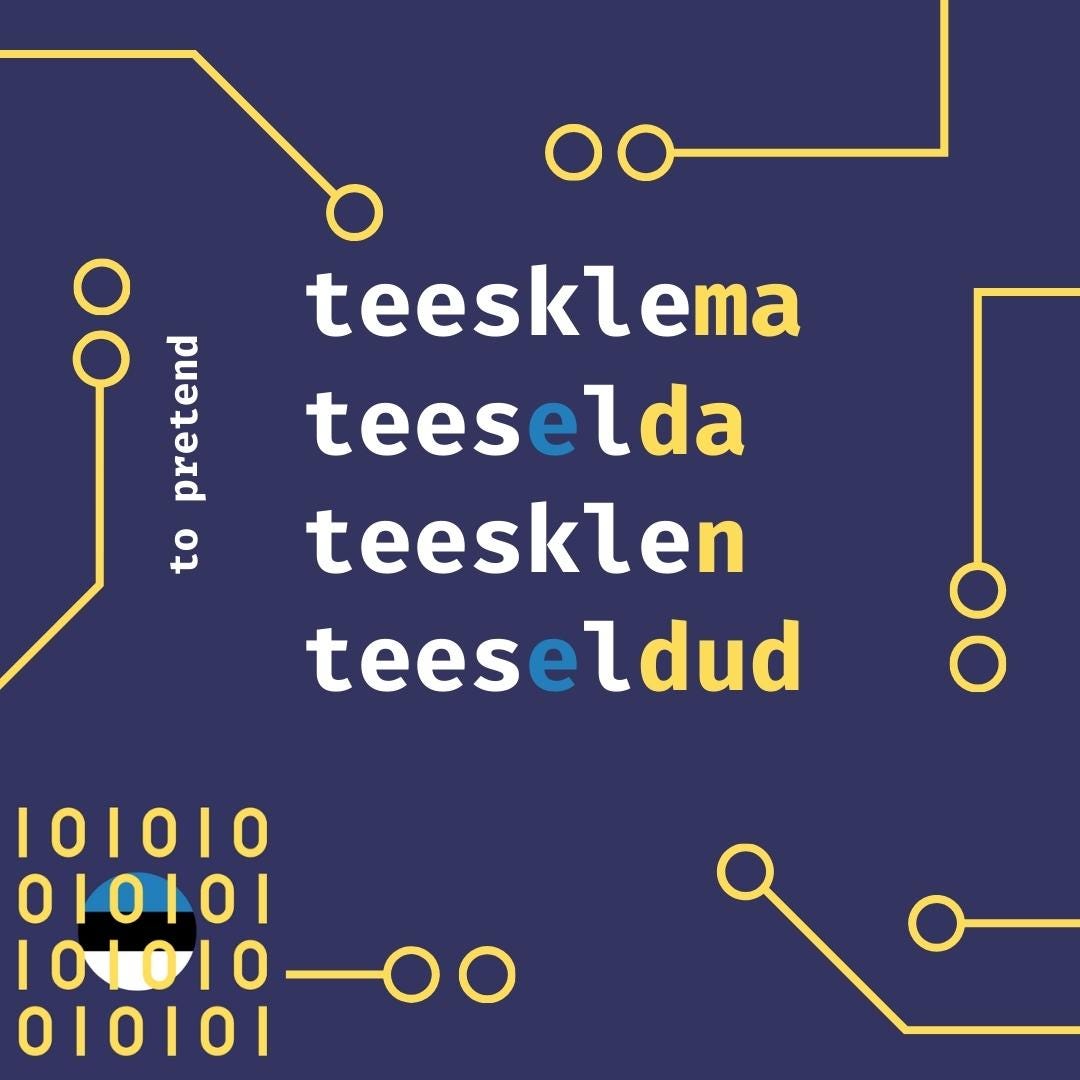Vocab: teesklema
to pretend
to pretend, to put on an act
Building blocks
tee- make, do
-skle- frequentative (expressing repeated, frequent action)
-ma - infinitive ending
Teesklema was formed from the verb "tegema" ("to make" or "to do") and the suffix -skle. Uniquely, it was formed not from the -ma infitive (tege/ma - to do), but instead from tee/n (1P Present Sg - I am doing). This is why the formed word is: tee/skle/ma
How to use it
What to remember when using the word teesklema:
Who or What you pretend to be is in the Partitive case (Third base form)
Here are a few ways to use it:
To pretend to be someone or something else
"Ta teeskles, et ta ei tea midagi." (He pretended that he didn't know anything.)
To feign an emotion or feeling
"Ta teeskles, et ta oli õnnelik." (She pretended that she was happy.)
Examples
Sõdurid teesklesid, et nad on tsiviilisikud
Literally: “Soldiers pretended that they are civilians”
Sõdurid - Noun - Nom Pl, "Soldiers"
teesklesid - Verb - 3P Past Pl, "pretended"
et - Conjunction - "that"
nad - Pronoun - Nom Pl, "they"
on - Verb - 3P Present Pl, "are"
tsiviilisikud - Noun - Nom Pl, "civilians"Sõdurid teesklesid tsiviilisikuid
Literally: “Soldiers pretended civilians”
Idiomatically: “Soldiers pretended to be civilians”
Sõdurid - Noun - Nom Pl, "Soldiers"
teesklesid - Verb - 3P Past Pl, "pretended"
tsiviilisikuid - Noun - Part Pl, "to be civilians"

